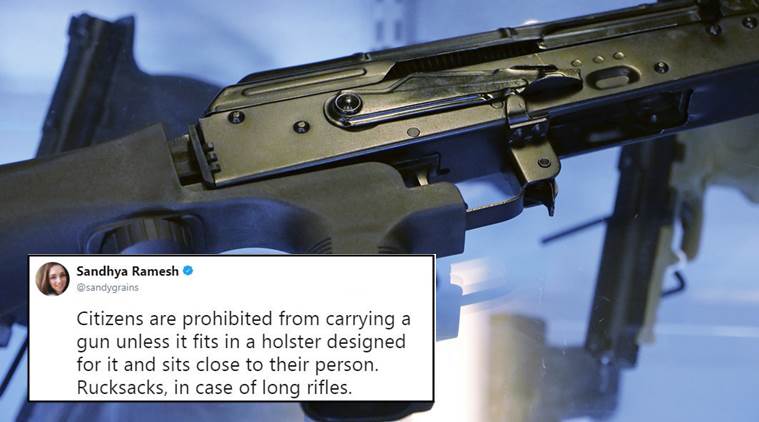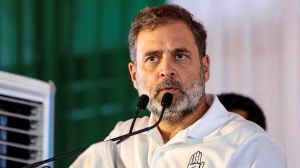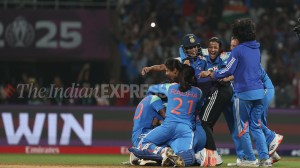This Twitter thread explains how to get a gun in India, and THANK GOD it’s not easy!
Have you ever wondered what is the procedure like in India for a civilian to procure a gun. Well, Sandhya Ramesh, a freelance writer with the Twitter handle @sandygrains expounded on the process through a series of tweets. And well, let us just say it is not an easy method.
 The Twitter thread tells you everything you need to know about to procure a gun in India. (Source: AP)
The Twitter thread tells you everything you need to know about to procure a gun in India. (Source: AP)
Mass shooting, of late, has emerged as one of most rampant global problems that needs an urgent redressal. This year began with several instances of mass shooting in the US and only recently in Florida’s Marjory Stoneman Douglas High School,17 students and more than a dozen were injured in what is being considered as one of the deadliest cases of mass shooting since 1966 in the country. Lack of rigorous background check and easy accessibility to weapons are often held as reasons for such frequent massacres. But have you ever wondered what is the procedure like in India for a civilian to procure a gun. Well, Sandhya Ramesh, a freelance writer with the Twitter handle @sandygrains expounded on the process through a series of tweets. And well, let us just say it is not an easy method.
Speaking to indianexpress.com Ramesh said that the mass shootings in America prompted her to write the tweets. “I saw a couple of tweets on how to get a gun in Canada, Israel, etc. So I thought I’ll do one on India as it appeared no one had done it,” she said. Ramesh states that for a civilian, at the very outset, getting a gun license is mandatory. And in order to do that one has to be minimum 21 years of age and fill up an application form with details about past criminal behaviour, if any. The process is laborious and may even take years. There are certain documents that one has to submit and a stringent background check by police takes place after this. “The police performs stringent background checks for 2 months. This includes reviewing the applicant’s mental health history, criminal history, interviewing them and their family, interviewing their neighbors re: suspicious and aggressive behavior, domestic violence, and more,” she wrote. This is just the start as several steps follow after this.
Her Twitter thread is extremely informative as she states the time it is considered illegal to carry a gun and the places which are designated gun-free zones.
A thread on how to get a gun in India. (It’s not easy).
— Sandhya Ramesh (@sandygrains) February 19, 2018
For a civilian to obtain a firearm, a gun license is mandatory. Minimum age for applying for one is 21. The application form asks details about past criminal behavior. The process to get one can take months, even years. pic.twitter.com/N6jSQUuSqp
— Sandhya Ramesh (@sandygrains) February 19, 2018
Required documentation: last 3 years’ income tax returns, 2 character certificates from eminent members in your locality, proof of education, proof of age, proof of identity, proof of residence, physical fitness certificate, mental health certificate, narc test, 4 photos.
— Sandhya Ramesh (@sandygrains) February 19, 2018
The police performs stringent background checks for 2 months. This includes reviewing the applicant’s mental health history, criminal history, interviewing them and their family, interviewing their neighbors re: suspicious and aggressive behavior, domestic violence, and more.
— Sandhya Ramesh (@sandygrains) February 19, 2018
All interviews are recorded and sent to both the Criminal Branch and the National Crime Record Bureau for record keeping purposes. Licensing Authority officials then interview the applicant. All reasons for approval or declining of a license are meticulously documented.
— Sandhya Ramesh (@sandygrains) February 19, 2018
All applicants have to undergo a mandatory arms handling course that covers how to fire a gun correctly, safe handling, safe storage, and safe transportation.
— Sandhya Ramesh (@sandygrains) February 19, 2018
Guns can be issued for three purposes only: self-defence, crop protection, and sport. If you apply for a license for self-defence, you are required to prove imminent/anticipatory threat to your life. Protection from wild animals counts.
— Sandhya Ramesh (@sandygrains) February 19, 2018
Licenses are usually issued by state licensing authorities. National licenses that can be used across the country are rare.
The probability of success for obtaining a license is higher if you are 30 and above.
A license is valid for three years.
— Sandhya Ramesh (@sandygrains) February 19, 2018
Possession of a gun or a license is not guaranteed by the law or the Constitution. Legally held weapons can be confiscated at any time as seen fit.
— Sandhya Ramesh (@sandygrains) February 19, 2018
To purchase a gun with a license, the civilian need to pre-book it with a licensed arms dealer, who in turn procures it from a factory. It can also be purchased from factories in proximity to your residence directly.
— Sandhya Ramesh (@sandygrains) February 19, 2018
Indian Ordnance Factory is the only legal manufacturer of guns. Importing guns is illegal.
— Sandhya Ramesh (@sandygrains) February 19, 2018
Civilians are allowed possession of only Non-Prohibited Bore (NPB) category weapons. This means two things:
— Sandhya Ramesh (@sandygrains) February 19, 2018
1. bolt actions, semi-automatics, barrels shorter than 20 inches are prohibited. In special circumstances, they can be issued (only) by the Ministry of Home Affairs (MHA), Central Govt. after receiving a recommendation from the State Home Ministry.
— Sandhya Ramesh (@sandygrains) February 19, 2018
These exceptions are always high ranking government officials and their families, defence personnel, and a select few professional shooters. Collectors are also exempted, but all collectibles are non-functional.
— Sandhya Ramesh (@sandygrains) February 19, 2018
2. Firearms designed to discharge continuously unless finger is lifted off trigger, ie fully automatics, are completely banned. As are guns that can discharge noxious gases.
— Sandhya Ramesh (@sandygrains) February 19, 2018
Air rifles, paintball guns, and blank firing guns are also classified as weapons and require licenses because these can be converted to functioning guns with machinery work.
— Sandhya Ramesh (@sandygrains) February 19, 2018
Tasers firing less than 15 feet require a license as well. But the govt has made obtaining this license much easier for women following the infamous 2012 Nirbhaya gang rape case https://t.co/pqYDAyYYlN
— Sandhya Ramesh (@sandygrains) February 19, 2018
More documentation required for civilian and arms dealer to obtain a gun from a factory: photocopy of gun license, a No Objection Certificate (NOC) for the police and the factory owner, transportation license possessed by the factory to transport the gun, residential proof.
— Sandhya Ramesh (@sandygrains) February 19, 2018
This process takes at least a month. And upon procuring a firearm, the civilian is required to produce it for inspection to check compliance and record-keeping in the licensing booklet.
— Sandhya Ramesh (@sandygrains) February 19, 2018
All public spaces including malls, hospitals, movie theatres, and schools of course, are designated gun-free zones. Any property can apply to become a gun-free zone.
— Sandhya Ramesh (@sandygrains) February 19, 2018
All public spaces including malls, hospitals, movie theatres, and schools of course, are designated gun-free zones. Any property can apply to become a gun-free zone.
— Sandhya Ramesh (@sandygrains) February 19, 2018
Citizens are prohibited from carrying a gun unless it fits in a holster designed for it and sits close to their person. Rucksacks, in case of long rifles.
Brandishing a firearm in public without cause is also prohibited.
— Sandhya Ramesh (@sandygrains) February 19, 2018
Accessories designed to stifle the firing of a gun like silencers and flash-hiders are illegal. Possession and manufacture of replica of firearms also requires a license. pic.twitter.com/SCSTetMNFE
— Sandhya Ramesh (@sandygrains) February 19, 2018
TL;DR: India has some of the strictest gun control laws in the world. Average number of deaths due to firearms per year is 3000 (legal + illegal) and declining in India, and 33,000 (legal) and increasing in the United States.
— Sandhya Ramesh (@sandygrains) February 19, 2018
Links: https://t.co/X7wvI8aHZC, https://t.co/CMBYjw0Pm5, http://164.100.72.178/armscode/pdf/FAQ_ARMS_RULES.pdf, https://t.co/kuYEfvGAmz, https://t.co/vfA0O2ajLZ, https://t.co/OzqrwXaKlH
— Sandhya Ramesh (@sandygrains) February 19, 2018
I forgot to add a couple of points from my notes: after an election is announced, it’s illegal to carry a gun until the results are declared. Post announcement, license offices stop the sale of arms and can request certain license holders to deposit their weapons w the police.
— Sandhya Ramesh (@sandygrains) February 20, 2018
Also, the cost of guns is designed to be a deterrent. Legal guns cost nearly 70% more than what they cost in the US. Illegal ones (esp import) go up to five or ten times the price.
— Sandhya Ramesh (@sandygrains) February 20, 2018
Everything above is for legal guns only, of course. Illicit trade flourishes.
— Sandhya Ramesh (@sandygrains) February 20, 2018



- 01
- 02
- 03
- 04
- 05



























